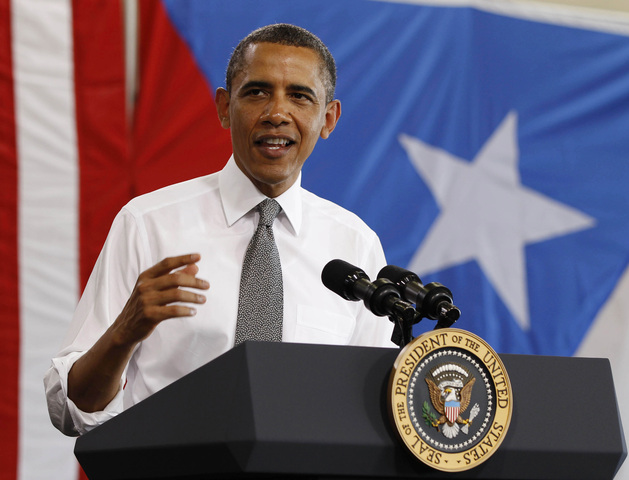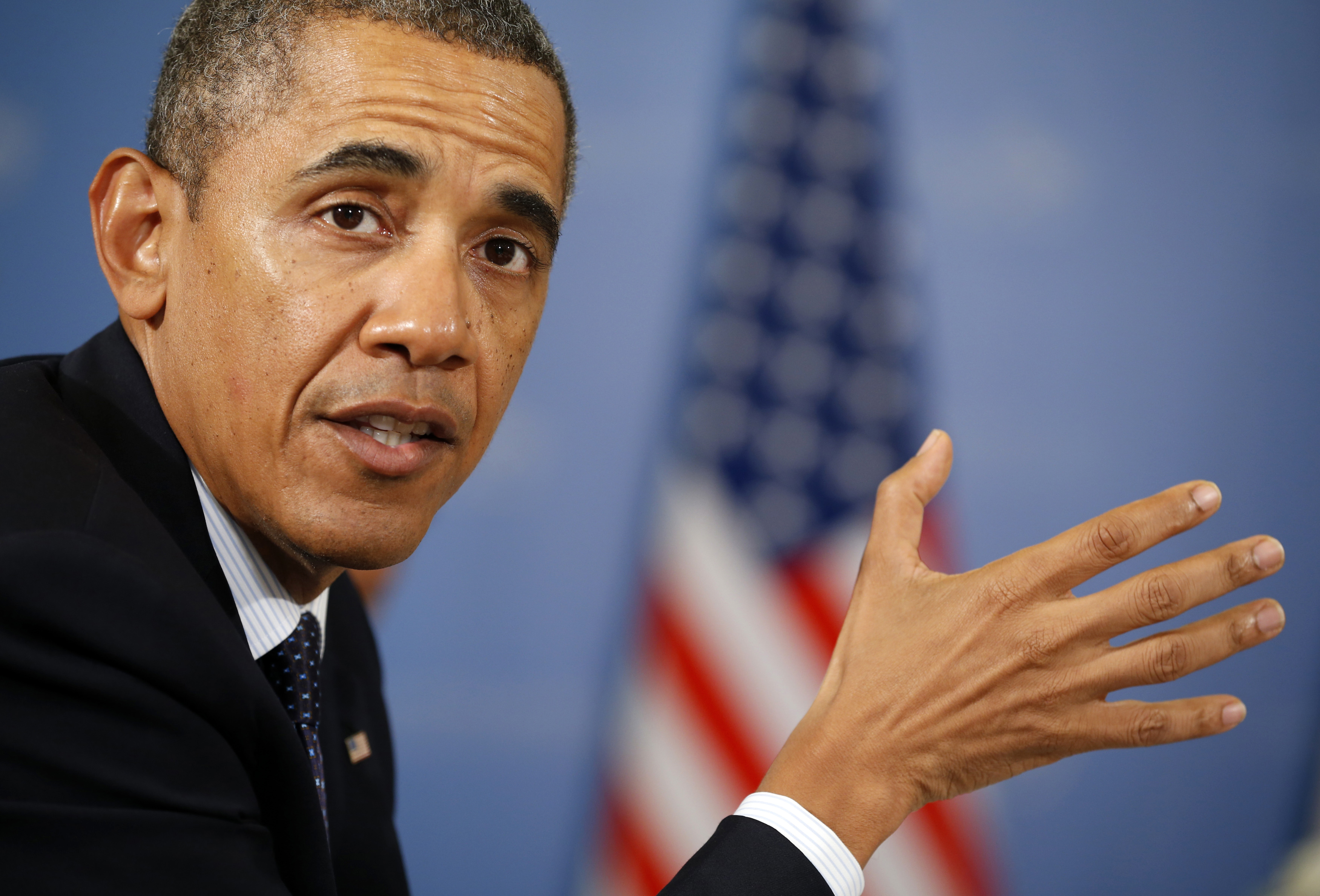

In the same month as Obama announces his bid for re-election, he also yields to “birthers” and Donald Trump, who insisted he publish his birth certificate, to quash rumours that he was born outside the US. The “worst mistake” of his presidency is how Obama described his lack of support to Libya after Gaddafi was deposed. The UK, US and France attack Muammar Gaddafi’s forces in Libya to enforce a UN-mandated no-fly zone. Obama signs a landmark law, the Don’t Ask, Don’t Tell Repeal Act, that allows gay people to serve openly for the first time in the US armed forces. Obama later pays tribute to the uprisings in the Middle East and North Africa as “a moment of opportunity” for change in the region. In response, the White House says: “President Obama supports responsible, accountable and open government at home and around the world, but this reckless and dangerous action runs counter to that goal.” The founder of WikiLeaks, Julian Assange, says the US authorities were afraid of being held to account. The Guardian publishes details of 250,000 American diplomatic cables, some marked “secret” or “confidential”, from the WikiLeaks whistleblowing website. The new treaty is intended to cut US and Russian strategic nuclear warheads from 2,200 to 1,550 over seven years.Īs the Deepwater Horizon oil rig explodes off Louisiana, leaving 11 crew members dead and threatening to cause a huge environmental catastrophe, Obama deals with what some call his “Katrina moment”. Obama and Russian leader Dmitry Medvedev sign the New Strategic Arms Reduction Treaty (New Start). The president tries to act as peacemaker by holding a “beer summit” at the White House with a black Harvard professor arrested for alleged disorderly conduct outside his home in Massachusetts and the white police officer who took him in.īarack Obama signs his signature healthcare bill into law in 2010. Leaving the UK, Obama visits Turkey, where he says: “The United States is not, and will never be, at war with Islam.” The president and his wife also meet the Queen. He meets the British prime minister, Gordon Brown, and other world leaders. Obama flies into London for the G20 summit where talks about the global financial crisis dominate. Days later he promises to end to the war in Iraq: “Let me say this as plainly as I can: by August 31, 2010, our combat mission in Iraq will end.” Obama signs a huge $787bn (£548bn) stimulus bill designed to save and create thousands of jobs to boost the beleaguered US economy.Ī surge in violence in Afghanistan sees Obama pledge an extra 17,000 military personnel, doubling the US presence there. The new president promises to close Guantánamo Bay, the contentious US facility in Cuba used to detain terror suspects, many of whom are held without charge. Read more about actions President Obama has taken to reform the criminal justice system.Barack Obama with his wife and daughters, Malia and Sasha, on election night on 4 November 2008. Since taking office, the Administration has worked to enhance fairness and efficiency at all phases of the criminal justice system, including the President signing the Fair Sentencing Act, the Department of Justice launching the Smart on Crime initiative, and the creation of the Task Force on 21st Century Policing. And he promised to continue to work with Congress to pass meaningful criminal justice reform that makes the system cost-effective, fairer, and smarter, while enhancing the ability of law enforcement to keep our communities safe.

The President has traveled the country and met with Americans who are working to fix the criminal justice system, from law enforcement officials working to lower the crime and incarceration rates, to former prisoners who are earning their second chance.

This topic isn’t new – the President has talked about the unfairness of much of the criminal justice system since his time in the Senate. Every year, we spend $80 billion to keep people locked up.

The United States has less than five percent of the world’s population but over 25 percent of the world’s prisoners. There are 2.2 million people behind bars in America today, compared to 500,000 just 30 years ago. Our country faces a vicious cycle of poverty, criminality, and incarceration that traps too many Americans and weakens too many communities.


 0 kommentar(er)
0 kommentar(er)
